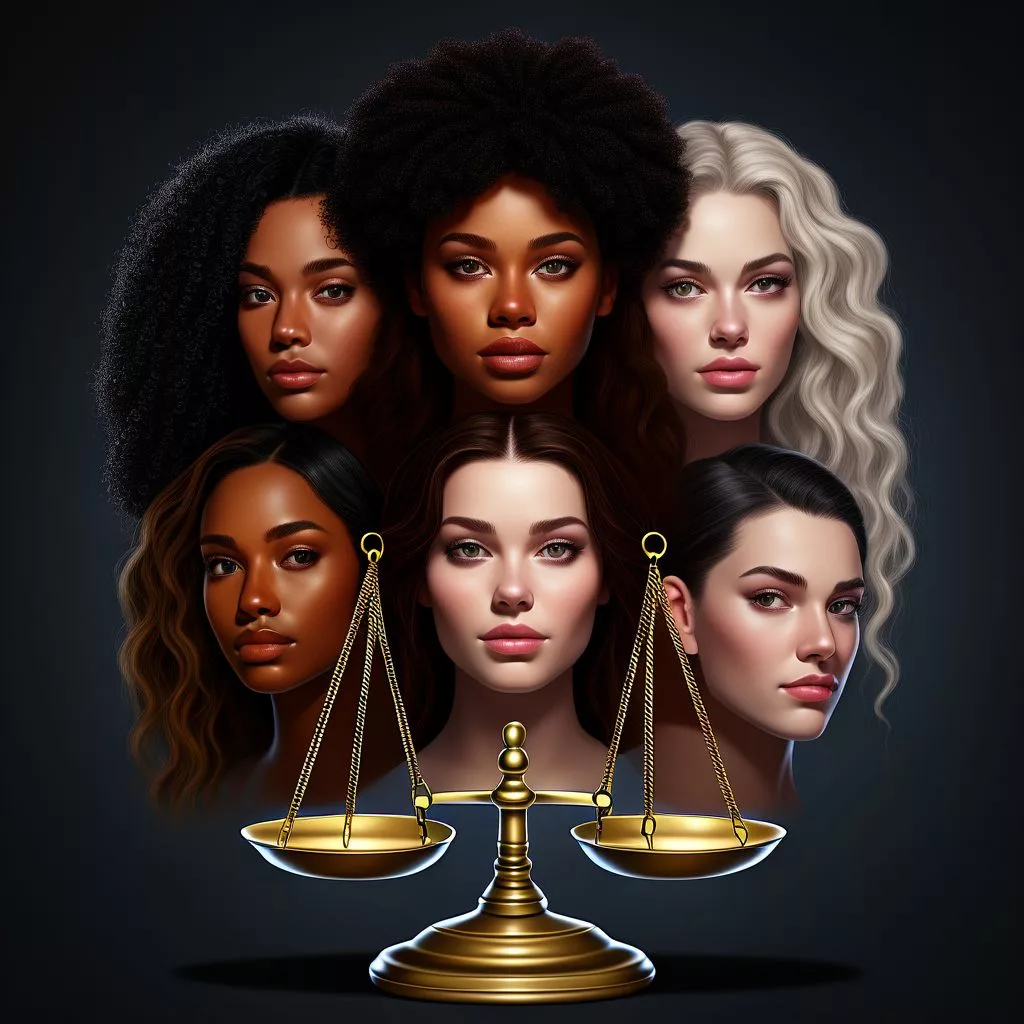In South Africa, a heated debate is brewing over fair representation in jobs, sparked by Minister Gayton McKenzie’s job ad that favored certain racial groups. Many critics argue that this approach sidelines black candidates, while McKenzie defends his choices by highlighting the need for diverse representation in a country still healing from apartheid. His stance aims to correct past wrongs by ensuring that all races have a voice in government jobs. This struggle for balance between equity and merit showcases South Africa’s ongoing journey towards a truly inclusive society, where discussions about race and fairness remain vital for its future.
What is the debate on equitable representation in South Africa?
The debate centers on the balance between addressing historical racial imbalances and ensuring fair representation in governance. Recently, Minister Gayton McKenzie faced criticism for prioritizing certain racial groups in job advertisements, highlighting the ongoing struggle for inclusivity and equity in post-apartheid South Africa.
In the dynamic sphere of South African governance, the topic of fair representation has reignited with fresh intensity. Recently, Sport, Arts, and Culture Minister Gayton McKenzie found himself amid a contentious debate. The catalyst was an advertisement from his department, which sought a deputy director for administrative support and coordination and explicitly favored coloured, Indian, and white males and females. Known for his candid demeanor, McKenzie defended this decision by referencing the Employment Equity Act—a law designed to ensure diverse racial representation within the workforce.
This decision, although contentious, sheds light on the complex journey South African society undertakes to achieve racial equity. The advertisement specified that preference would be given to coloured males, Indian males, white males, coloured females, and Indian females, alongside particular qualifications and experience. Critics contended that this approach marginalized black candidates, triggering a fervent response from McKenzie.
McKenzie retorted, “Employment equity, are you saying you have never heard of it? We are making sure all races are represented,” capturing the essence of his defense. This assertion delves into South Africa’s broader historical and socio-political context—a nation striving to overcome apartheid’s legacy and achieve genuine inclusivity.
Correcting Racial Imbalances
McKenzie’s stance represents a calculated effort to rectify racial imbalances within his department. Of the 586 department staff members, the overwhelming majority are African. His goal is not to exclude but to cultivate a workforce that genuinely reflects the diverse fabric of South African society. “I am for all races,” he emphasized, addressing his critics directly. “When I find other races have been ignored and rarely given job opportunities, it is my duty to fix it. I’m fixing things.”
His determination to implement these changes, despite opposition, mirrors the spirit of transformative leadership evident in various historical movements prioritizing inclusivity and representation. For instance, the Civil Rights Movement in the United States relentlessly pursued the integration of African-Americans into all aspects of public life. Similarly, McKenzie’s actions echo post-apartheid South Africa’s efforts to dismantle systemic racial barriers.
However, this initiative hasn’t been free of opposition. Certain unions have vocally demanded McKenzie’s ousting, asserting that employment decisions should hinge solely on qualifications rather than racial considerations. While this perspective is rooted in meritocracy principles, it often fails to account for the nuanced realities of structural inequalities that have historically marginalized specific groups.
Navigating Criticism and Upholding Equity
McKenzie’s response to accusations of racism was forthright and impactful: “I can never lead a department that is so unrepresentative of society. I’m being accused of racism by people who need to look in the mirror.” His statement underscores that inclusivity transcends tokenism; it requires active and sometimes uncomfortable steps to rectify historical injustices.
The South African context adds layers of complexity to this debate. The nation’s legislation, such as the Employment Equity Act, emanates from a history marred by racial segregation and economic disparity. These laws aim to generate opportunities for historically marginalized groups while fostering a balanced and inclusive workforce. Despite backlash, McKenzie’s adherence to these principles indicates a commitment to these legislative goals.
This scenario isn’t exclusive to South Africa. Globally, organizations and governments wrestle with the challenge of ensuring diverse representation while balancing meritocracy and equity. From affirmative action policies in the United States to quota systems in India, the pursuit of inclusivity often sparks contentious debates and evokes strong emotions.
The Broader Societal Struggle
In McKenzie’s case, the controversy highlights the broader societal struggle to reconcile historical inequities with contemporary aspirations for equity and fairness. The criticism he encounters reflects a broader skepticism towards initiatives aimed at addressing long-standing disparities. Nonetheless, his unwavering stance underscores the importance of deliberate and proactive measures in attaining genuine inclusivity.
South Africa’s path towards racial equity is a complex narrative interwoven with historical struggle, legislative action, and societal transformation. Figures like McKenzie, despite the controversies they may spark, play a vital role in this ongoing journey. Their actions stimulate necessary discussions and reflections on what it means to forge a truly representative society.
In sum, the debate surrounding McKenzie’s job advertisement epitomizes the broader issues in South Africa’s quest for racial equity. It reflects the delicate balance between addressing historical injustices and navigating modern expectations of fairness and meritocracy. As the country continues to evolve, these discussions will remain pivotal, shaping the trajectory towards a more inclusive and representative society.
By keeping these dialogues active and engaging with the nuances of representation, South Africans can work towards a future that honors the diverse identities within their community. The path to equity is fraught with challenges, but it is through such rigorous debates and proactive measures that a more just and inclusive society can be realized.
“`markdown
What is the current debate regarding equitable representation in South Africa?
The current debate centers on the tension between addressing historical racial imbalances in the workforce and ensuring fair representation in governance. This discussion was recently reignited by Minister Gayton McKenzie, who faced criticism for prioritizing certain racial groups in a job advertisement. The controversy reflects South Africa’s ongoing struggle for inclusivity and equity in the wake of apartheid.
What did Minister Gayton McKenzie’s job advertisement entail?
Minister Gayton McKenzie’s job advertisement sought a deputy director for administrative support and coordination, explicitly favoring coloured, Indian, and white candidates. This decision drew significant backlash from critics who argued that it marginalized black candidates, raising questions about the fairness and implications of such hiring practices in a diverse society.
How does McKenzie justify his decision to prioritize certain racial groups in hiring?
McKenzie defends his decision by referencing the Employment Equity Act, which aims to ensure diverse racial representation within the workforce. He emphasizes that his goal is not to exclude any group but to correct historical imbalances and cultivate a workforce that genuinely reflects South Africa’s diverse population. He stated, “I am for all races,” indicating his commitment to inclusivity.
What are the criticisms of McKenzie’s approach to equitable representation?
Critics, including some labor unions, argue that employment decisions should prioritize qualifications over racial considerations. They express concern that McKenzie’s approach may perpetuate division rather than foster genuine inclusivity, claiming that such prioritization could undermine the meritocracy principle in hiring practices.
How does this debate reflect broader societal struggles in South Africa?
The debate highlights the complex interplay between historical inequities and contemporary aspirations for equity and fairness in South Africa. It underscores the skeptical view towards initiatives aimed at addressing long-standing disparities, while also illustrating the importance of proactive measures in achieving genuine inclusivity. This societal struggle is deeply woven into the nation’s legislative and socio-political fabric.
What role do discussions about equitable representation play in South Africa’s future?
Discussions about equitable representation are pivotal for shaping a more inclusive society in South Africa. Engaging in these dialogues allows for a deeper understanding of the historical context and the complexities of race and equity. As the nation continues to evolve, these conversations will be essential in navigating the path towards a future that honors and represents the diverse identities within the community.
“`












